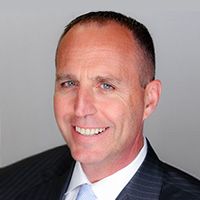Retiring in the Midst of COVID-19
Take stock of your priorities in these challenging times. I did, and after doing so, I decided retiring early is the right decision for me.

Profit and prosper with the best of Kiplinger's advice on investing, taxes, retirement, personal finance and much more. Delivered daily. Enter your email in the box and click Sign Me Up.
You are now subscribed
Your newsletter sign-up was successful
Want to add more newsletters?
The spread of COVID-19 has most Americans understandably concerned — foremost about their health and safety, but for many of us, our finances aren’t far behind. Given increased market volatility, low interest rates and rising unemployment, retirement is likely one of the furthest things from our minds. But based on a slew of factors, and despite the uncertainty, it’s my time to retire, focus on my health, and eventually transition into my “second act.”
As I shared previously, I returned from vacation last fall sick as a dog. Despite taking a leave from work to focus on recovery, I’m still not quite feeling like myself. Because I split time between my home in Washington state and my office in New York, I started thinking about how to best manage my health while balancing personal and professional priorities. After significant and difficult deliberation, I realized my heart was in Washington and my family needed me there — healthy — and I began planning for an earlier-than-expected retirement.
Whether a health-related circumstance or a career shift sparks the need to accelerate your retirement plans, here are some of the key questions to consider.
From just $107.88 $24.99 for Kiplinger Personal Finance
Become a smarter, better informed investor. Subscribe from just $107.88 $24.99, plus get up to 4 Special Issues

Sign up for Kiplinger’s Free Newsletters
Profit and prosper with the best of expert advice on investing, taxes, retirement, personal finance and more - straight to your e-mail.
Profit and prosper with the best of expert advice - straight to your e-mail.
Questions to consider when thinking about an earlier retirement
While I’ve had a retirement plan in place for 25+ years, the prospect of a firm end date on my current professional life made things feel “real.” My wife and I were sure to review a few key areas of our portfolio before we reached a decision, asking ourselves the following:
What kind of lifestyle will we be able to maintain if I retire now?
Because we planned for me to work for another five years, we worked with our financial professional — yes, financial professionals do often seek out the help of financial professionals, just as doctors see other physicians to maintain their own health — to determine how this would impact the plans and visions we had in mind. We needed to understand what “living within our means” would look like on this revised timeline.
Budgets become incredibly important in this process as we transition into retirement, reinforcing what fixed expenses we would need to maintain, what additional costs we would incur, and how we could navigate them within our new spending parameters.
What types of guaranteed income vehicles do we have in place?
In building out our new budget, we reviewed any pensions, lifetime guaranteed income products, and other assets in our portfolio to fully understand what we will be able to spend and allocate in addition to our longer-term and emergency savings funds.
Are our kids covered until they are on their own?
With our children currently in college, we had to make sure our 529 college savings plans and education fund would be able to cover what we had anticipated, knowing that we would be adjusting to a reduced income.
What will this mean for our benefits?
We reviewed our family’s health insurance policies and took the proper steps to ensure that once I retire, the family will still have the right coverage in place for the years ahead. This included reviewing our life, health, dental and vision benefits, as well as any corporate discounts or memberships I received through my employer. When making this transition, partnering with your current human resources department will make this process easier.
How will this impact my spouse’s retirement?
My wife, thankfully, really enjoys her job and is content with her retirement timeline. While we shifted around our plans to adapt to my new circumstances, we are still fortunate and able to consider her income and career trajectory in tandem with my pension, retirement savings and any potential “second act” I may pursue in the future.
Parting words of financial wisdom
I’ve loved having the opportunity to reflect on important financial decisions and topics, highlighting my perspective and top tips for Kiplinger’s readers. Before I sign off for now to continue focusing on recovery and enjoying some much-needed bonus time with my family, I want to leave you with my three go-to pieces of advice:
Start with the basics – and stick to them.
A budget and thorough understanding of what living within your means looks and feels like is the bedrock of any stable financial plan. Saving and planning for large expenses will empower you to both have the things you want and need (perhaps a vacation or upgrade to your appliances) and also avoid creating unnecessary consumer debt. An old-school budget will open up a world of financial opportunities over time.
Take a protection-first approach to your financial plan.
Understand the role of life insurance and guaranteed products for your family to prevent financial distress should the unexpected occur. The peace of mind and long-term benefits will give you the confidence to continue saving, investing and spending without concern or fear of creating debt for your loved ones.
Find a financial professional you trust.
The value of human guidance is unparalleled by any software or app my kids try to convince me to try. It’s incredibly important and helpful to have a trusted partner through the different stages of life and the various financial commitments and adjustments that may accompany them.
These have been the bedrocks of my financial plan, and they’ve held true through a number of market cycles, including the current coronavirus pandemic. I hope they can be helpful for yours, too.
Profit and prosper with the best of Kiplinger's advice on investing, taxes, retirement, personal finance and much more. Delivered daily. Enter your email in the box and click Sign Me Up.

Brian G. Madgett, CLU®, ChFC®, is Head of Consumer Education at New York Life. In this role, Brian helps families across the country learn how to build better futures, rooted in a protection-first financial plan, for themselves and those they love. Brian began his nearly 30-year career as a New York Life financial specialist and has since held several leadership roles within the company. He earned his Bachelor of Science degree from John Jay College.
-
 Americans, Even With Higher Incomes, Are Feeling the Squeeze
Americans, Even With Higher Incomes, Are Feeling the SqueezeA 50-year mortgage probably isn’t the answer, but there are other ways to alleviate the continuing sting of high prices
-
 Hiding the Truth From Your Financial Adviser Can Cost You
Hiding the Truth From Your Financial Adviser Can Cost YouHiding assets or debt from a financial adviser damages the relationship as well as your finances. If you're not being fully transparent, it's time to ask why.
-
 How to Manage a Disagreement With Your Financial Adviser
How to Manage a Disagreement With Your Financial AdviserKnowing how to deal with a disagreement can improve both your finances and your relationship with your planner.
-
 Are You Honest With Your Financial Adviser? Why Hiding the Truth Can Cost You
Are You Honest With Your Financial Adviser? Why Hiding the Truth Can Cost YouHiding assets or debt from a financial adviser damages the relationship as well as your finances. If you're not being fully transparent, it's time to ask why.
-
 5 Actions to Set Up Your Business With Your Exit in Mind, From a Wealth Adviser
5 Actions to Set Up Your Business With Your Exit in Mind, From a Wealth AdviserWhen you're starting a business, it may seem counterintuitive to begin with exit planning. But preparing will put you on a more secure footing in the long run.
-
 Missed Your RMD? 4 Ways to Avoid Doing That Again (and Skip the IRS Penalties), From a Financial Planner
Missed Your RMD? 4 Ways to Avoid Doing That Again (and Skip the IRS Penalties), From a Financial PlannerIf you miss your RMDs, you could face a hefty fine. Here are four ways to stay on top of your payments — and on the right side of the IRS.
-
 What Really Happens in the First 30 Days After Someone Dies (and Where Families Get Stuck)
What Really Happens in the First 30 Days After Someone Dies (and Where Families Get Stuck)The administrative requirements following a death move quickly. This is how to ensure your loved ones won't be plunged into chaos during a time of distress.
-
 AI-Powered Investing in 2026: How Algorithms Will Shape Your Portfolio
AI-Powered Investing in 2026: How Algorithms Will Shape Your PortfolioAI is becoming a standard investing tool, as it helps cut through the noise, personalize portfolios and manage risk. That said, human oversight remains essential. Here's how it all works.
-
 A Newly Retired Couple With a Portfolio Full of Winners Faced a $50,000 Tax Bill: This Is the Strategy That Helped Save Them
A Newly Retired Couple With a Portfolio Full of Winners Faced a $50,000 Tax Bill: This Is the Strategy That Helped Save ThemLarge unrealized capital gains can create a serious tax headache for retirees with a successful portfolio. A tax-aware long-short strategy can help.
-
 5 Retirement Myths to Leave Behind (and How to Start Planning for the Reality)
5 Retirement Myths to Leave Behind (and How to Start Planning for the Reality)Separating facts from fiction is an important first step toward building a retirement plan that's grounded in reality and not based on incorrect assumptions.
-
 I'm a Financial Adviser: Silence Is Golden, But It Hurts Your Heirs More Than You Think
I'm a Financial Adviser: Silence Is Golden, But It Hurts Your Heirs More Than You ThinkTalking to heirs about transferring wealth can be overwhelming, but avoiding it now can lead to conflict later. Here's how to start sharing your plans.